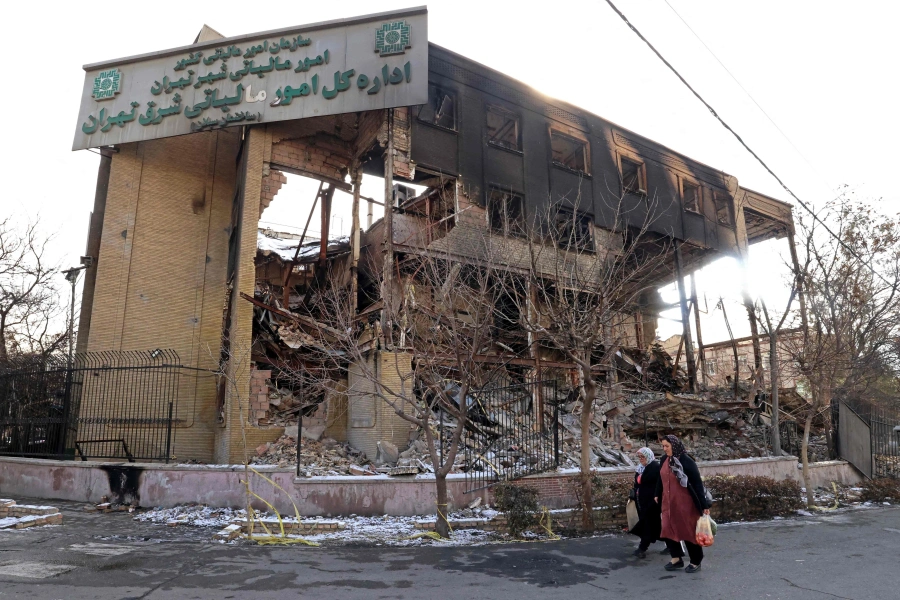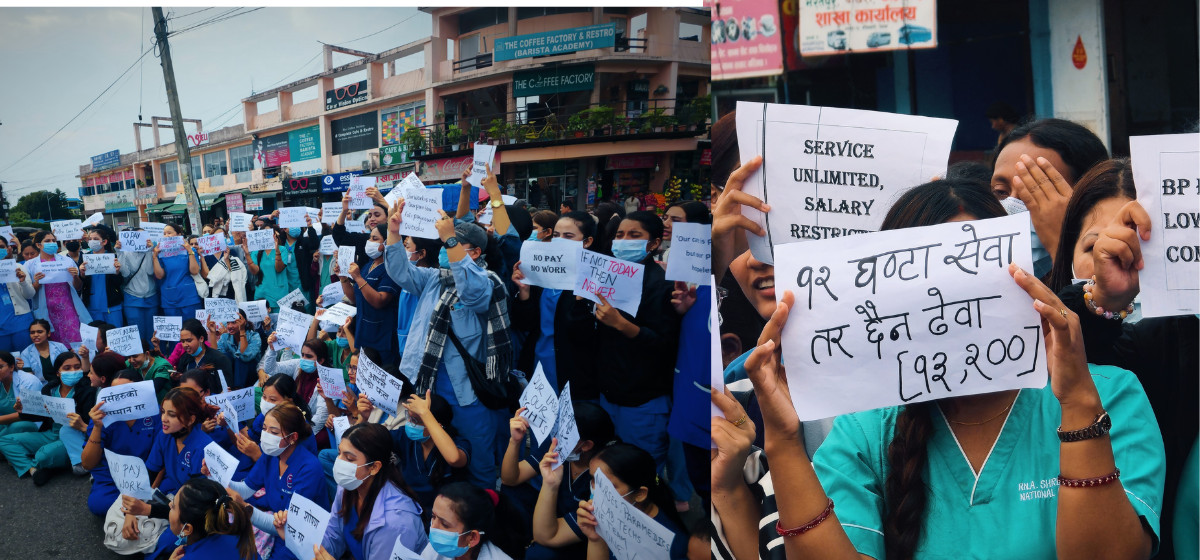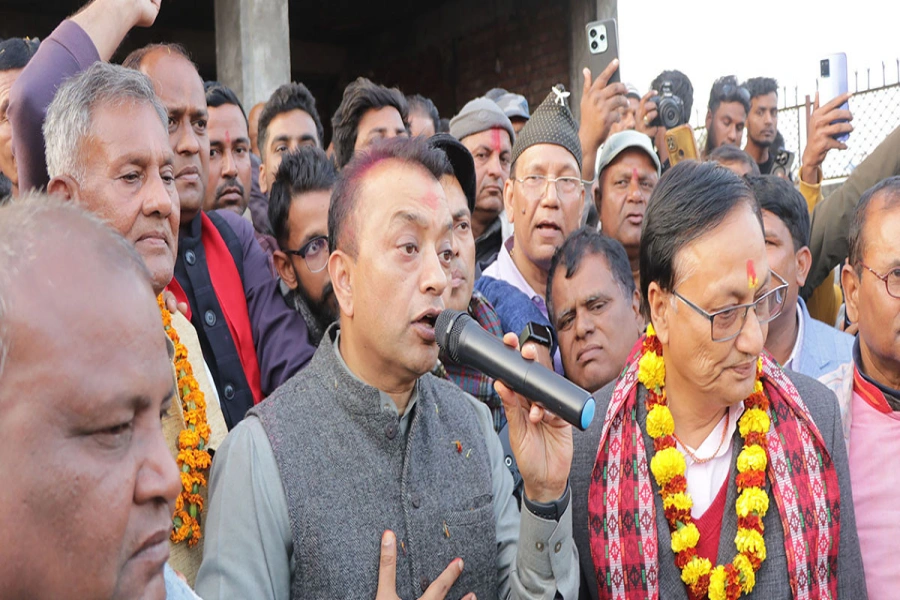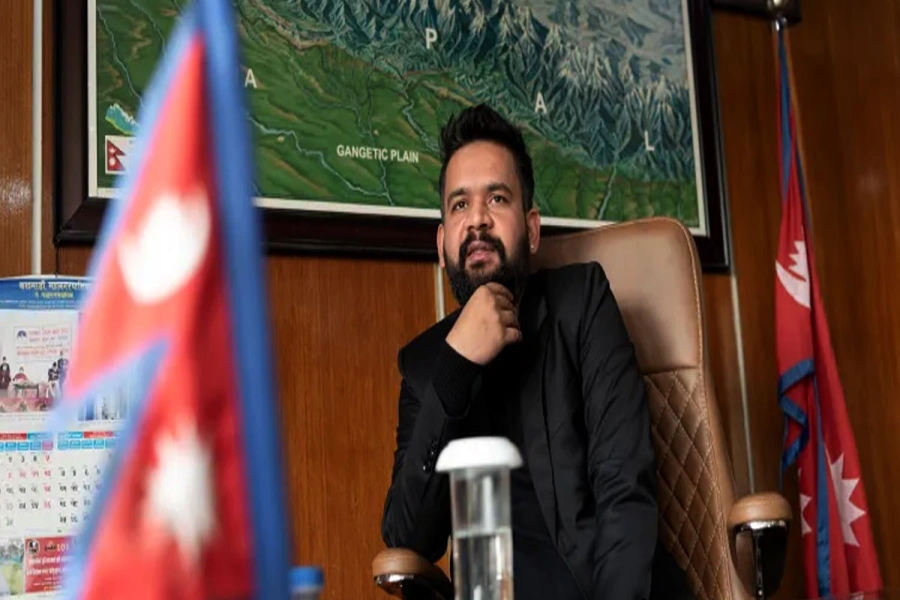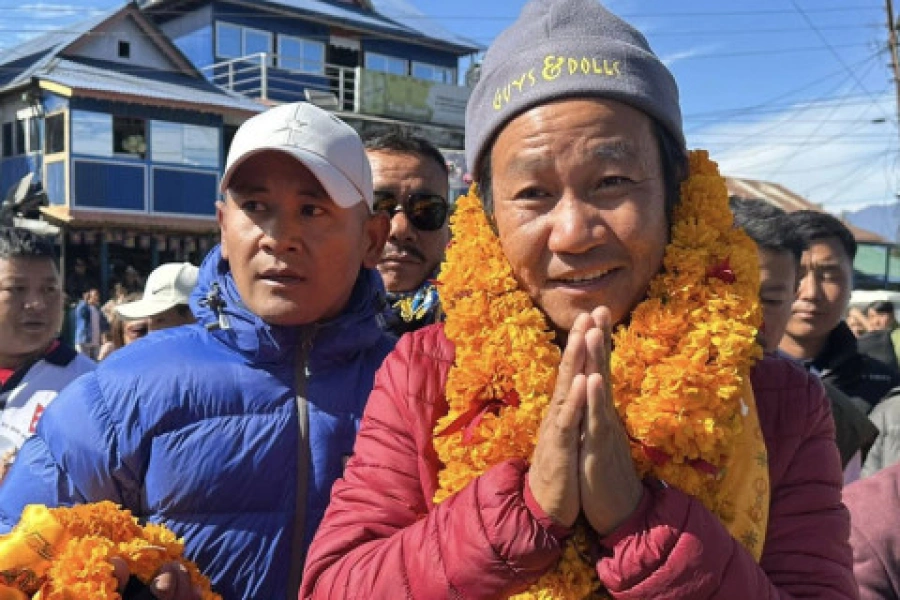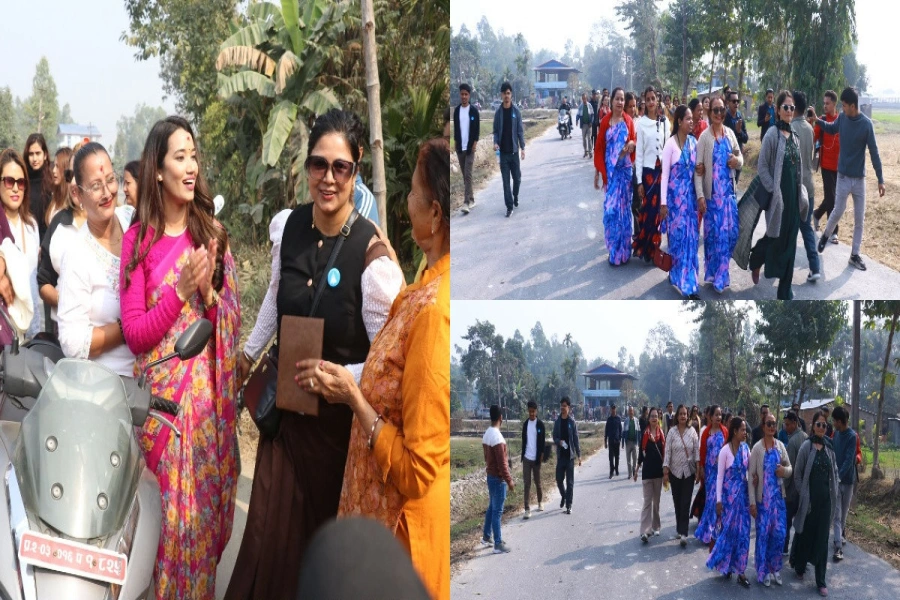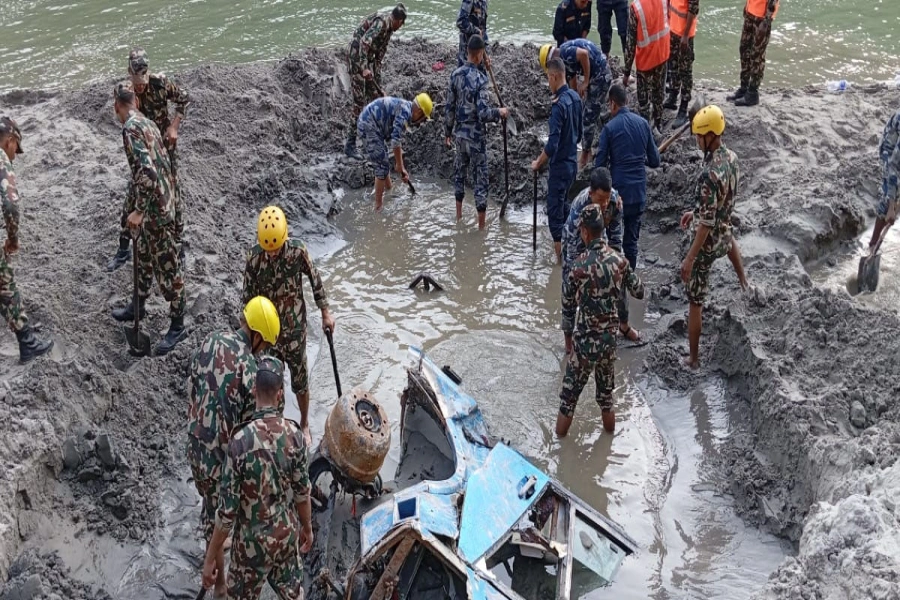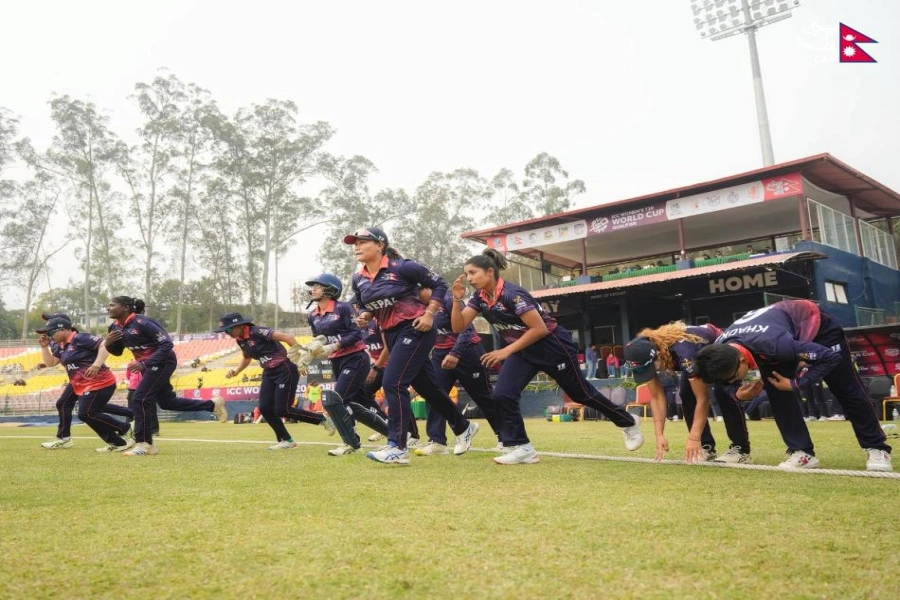DHARAN, March 17: Hari Kumari Rai, a nursing supervisor at the BP Koirala Institute of Health Sciences (BPKIHS), says that she 'does not have time even to breathe.' However, patients complain that there are no nurses around to care for them. “One nurse is supposed to take care of around six patients, but here we have to look after twenty patients,” Rai lamented.
Human resource crunch has been affecting the services of the hospital. "Everyone shouts at the nurse. They cannot vent out their anger at the doctor, but nurses are an easy target,” she said.
The shortage of nurse in the hospital has become acute in recent years. The lack is mostly due to the overwhelming demand for nurses in foreign countries. 'Nobody wants to work in Nepal.'
The quota of nurses in the hospital is 601. But this quota was decided when the hospital had 500 beds. Now the hospital has over 750 beds. However, the number of nurses working here is 402. Due to the shortage, nurses are denied personal or sick leave in most cases and have been working off hours.
“Young people don't want to work in Nepal even otherwise. Their aim is often to go abroad. If you talk about this hospital, people are quitting their jobs for several other reasons too,” Rai said.
Nurses on the frontline in the battle against COVID-19 as Inter...

Shortage of nurse in the hospital has affected services in several of its departments. The most affected departments are the intensive care unit (ICU), dialysis unit and the emergency ward. The number of nurses working at the hospital is so low then the requirement that they don't get even weekly off. And this has affected the health of those nurses as well.
“The nurses who are working here are so overloaded that they have started showing worrying health signs. And yet, there is no way to give them some free time,” Rai said.
According to her, nurses are not getting leaves even when they get ill. Unless they are bedridden, they are expected to be at work. “The condition is so worse that even when they fall sick, they take medicine and continue with their work at the hospital.”
Nurses who are mothers themselves feel the most helpless as they have to juggle between caring for the patient as well as their baby. “We have some nursing mothers here who are working as a nurse. Sometimes they don't even get the time even to breastfeed their babies,” she said.
The total quota of nurses in the hospital is 601. But this quota was decided when the hospital had 500 beds. Now the hospital has over 750 beds. Along with that, the number of patients receiving treatment at the hospital has also grown. But let alone hiring additional nurses for the extended bed capacity, the hospital has not yet hired the nurses required as per its initial estimates. As per the hospital data, there are only 402 nurses at the hospital.
Gayananda Mandal, professor, and matron of BPKIHS, the number is not accurate. Many have left job recently, and the data has not been updated. “We are facing serious problem due to the shortage of nurses in our ICU and emergency wards. Just imagine what happens when we don't have assistants in those wards,” he said. “We cannot sanction personal leave to nurses stationed in such ward. If we do so, hospital service will come to a halt.”
Mandal stated that not just nurses, but doctors and other staffs at the hospital are struggling to cope with work pressure due to the lack of required human resources.
'If there is a shortage of human resource, work is not done properly.”
There are 40 wards at the BPKIHS. And with the nurses currently available, one department gets ten nurses. And this affects the operations of even emergency and ICU departments. “We are not able to give quality service to patients. Running three shifts in sensitive wards has become very difficult for us,” Mandal explained.
Emergency ward is always filled with patients double than its capacity. Since it is the biggest hospital in the region, patients come from far-flung areas. But the lack of nurses has directly affected the services these visitors get at the hospital.
“We are not happy with the service we are providing. If you ask patients they will share with you a huge list of complaints,” Mandal said.
Rai meanwhile said that nurses turn very impatient and arrogant when they have to work day and night. And patients feel that nurses are very rude. “When you have to work far more than your capacity, you naturally lose your temper. Here also, the same things happen. Our temperament irritates others, but they don't understand the reason behind it.”
There are eight dialysis machines at the BPKIHS. But due to the shortage of nurses, only six have been brought in use. Though the needed number of nurses in this department for three shifts is at least 24, only half the amount is currently stationed here.





